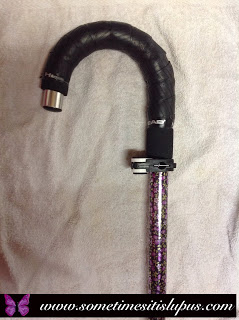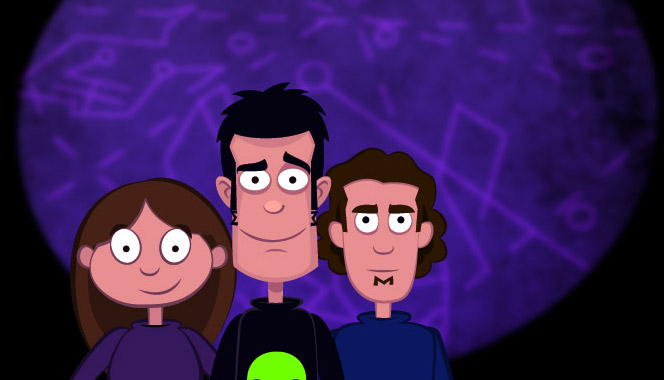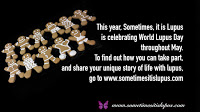I thought I'd share with you the first draft of my next speech for Toastmasters.
I'd love feedback from lupies out there:
Stalked by a Serial Killer.
Right now at least 17000 Australians are being stalked by a serial killer.
The killer, lupus, doesn’t plan to take any of our lives straight away. First, we have to go through years of physical and mental trauma, and taking toxic drugs to stay alive.
Then death from lupus, or from conditions related to lupus is inevitable, unless, of course, someone finds a cure.
Lupus can do the most amazing things (and not in a good way.) Because it is a disease of the immune system, and the immune system is throughout the entire body, every part of the body is at risk.
Lupus frequently causes joint pain, skin rashes, fatigue and cognitive dysfunction. It can also cause heart failure, lung failure, kidney failure, liver failure…. You get the idea.
With careful management, it’s possible for many people to live quite a long time with lupus - but quality the quality of life is variable. Lupus is episodic, and patients may go for weeks, months, or even years with little disease activity. Some patients even convince themselves they are “cured”, and stop taking their medication. Sadly, there’s always another flare. It will usually come without warning.
In the attempt to live a little longer, or with a better quality of life, we take the toxic drugs our doctors prescribe.
And these drugs are toxic. There has so far only been one drug developed specifically to treat lupus. Benlysta was, at least partly, the product of research at Australia’s Monash University. It’s accessible in Australia, but not on the Pharmaceutical Benefits Scheme, so no-one can actually afford to use it.
What we do have are drugs that were developed for other conditions, that have been found to help.
Plaquenil, is actually an antimalarial drug, and patients who take it need regular eye checks because Plaquenil can cause blindness.
Methotrexate, is a chemotherapy drug used for cancer patients. Cancer patients have high doses for one or two brief periods. We have low doses every week for, well, for ever unless it stops working. It’s used to kill off part of the immune system to help keep it under control. It means cuts and bruises take forever to heal, and it depletes our bodies of the folate needed to absorb iron.
Steroids, also help to slow down the immune system, but they also cause high blood pressure, weight gain, bone thinning, and (turn around to show) this lovely little “buffalo hump” at the base of the back of the neck.
But wait there’s more - although I guess you get the point without me detailing another dozen or more drugs we use.
So we have treatments, although they’re far from perfect. What we don’t have, and desperately need, is a cure
So far the only known cure for lupus is death.
There are researchers working on the problem, developing better treatments, working slowly towards an ultimate cure.
You don’t hear much about these researchers. People don’t stop you in the shopping centre and ask you to donate. No-one’s going to sell you a flower to raise money.
The organisations that fundraise for medical research for diseases like cancer, are made up of people who have survived those diseases, those who’ve got better.
No-one with lupus, gets better. There’s no big fundraising organisation. (Not here in Australia, anyway.) If you want to support lupus research, you have to go looking for researchers to support.
One place you can look is my blog, sometimesitislupus.com. There you’ll find links to donate cash to two different university teams researching lupus.
The team at Monash University is looking at developing more effective and safer drugs to treat lupus. The team at Australian National University is using an individual patient’s DNA to determine which treatment is the best for that individual.
They’re not at the point of a cure yet, but they’re at least working towards it, and you can help them.
So where are we right now?
Thousands of Australian lupus patients are trapped in a real-life nightmare, taking toxic drugs to stay alive, and desperately hoping for a cure. Right now that cure’s a dream, a vague hope. Maybe one day it will be a reality. Maybe you’d like to help make it a reality.




